Tips for Decoding Egg Carton Labels
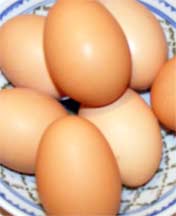
New York Times writer, Catherine Price, recently wrote an interesting article about one of the most common kitchen staples: the egg. As she says, in the past, "an egg was an egg." Your only choice was size.
But now, consumers can choose from what some foodies call "designer eggs." Some producers claim to treat their hens more humanely than other producers. Other cartons boast of extra health benefits from their eggs, such are more Omega-3 fatty acids.
Unfortunately, there's not a lot of regulation of some of these terms; animal welfare groups warn consumers to pay careful attention when they buy.
Here's a brief explanation of the controversy, a glossary of terms, and some tips for wading through the competing claims.
Farm Conditions Draw Attention from Consumers
The aspect of egg production that gets the most attention from consumers, farmers, and animal welfare organizations is not what the hens eat, but how they live. Conditions differ markedly, depending on whether hens are raised on a conventional commercial farm or one that practices free range, cage free, or pasture farming.
From USA Today:
In conventional egg production, hens live in what are called battery cages In this case, the word "battery" means "array," as in a stack of cages that can be as much as two stories high.
There are about six hens to a cage, and each hen gets up to 67 square inches of floor space, about 3/4 of a sheet of notebook paper, says Mitch Head of the United Egg Producers.
It doesn’t sound like much space, and animal welfare groups encourage egg farmers to raise hens with more space and freedom of movement. Eggs produced that way carry a price premium, but no added health benefits. Still, consumers are buying: sales increased 30% between 2002 and 2006.
Read Carefully Before You Buy
Some phrases on the box have no legal meaning, and some of the pictures are misleading. Some companies just put the eggs in a carton labeled "natural" or "animal friendly" and decorated with a pastoral drawing of apple-cheeked children scattering seed to eager, uncaged hens. All that means is that they took some time designing a nice label. It tells you nothing about how the hens were raised or treated.
Here are some often-used terms found on egg cartons along with a brief explanation of their actual meaning.
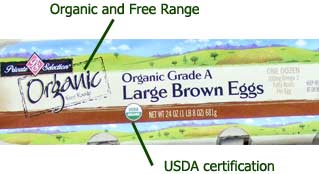
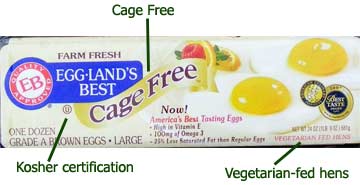
Cage Free: These hens are raised indoors, but without the tiny battery cages. They have room to move about and interact with each other. Most don't have access to outdoors.
But, as Michael Spencer, an egg distributor in Fullerton, CA, notes, many hens don't pine for the great outdoors: "They are very squeamish birds; they're very defenseless. They know they have predators out there."
Free Range: These hens aren't raised in battery cages and have some access to the outdoors. Just how much varies. It could be a small porch, covered deck, or fenced yard.
Pasture Raised: These chickens are outside pecking around in the grass, eating grubs, and whatever else they come across. At night, they're brought inside to roost.
Proponents claim that there's a distinct taste difference. My husband certainly agrees; we have neighbors whose chickens live outside, eat bugs, and do regular chicken stuff all day. He claims that the taste is far superior to commercial eggs – even free-range eggs.
Kosher Certified: According to the Jewish Outreach Institute, the only requirement for an egg to be kosher is that it come from a permitted bird like a chicken, duck, or goose and that the egg have no bloodspots when cracked open. A kosher marking stamped on the carton or on the egg itself isn't required.
There's no difference between a chicken egg with a kosher mark (called a "heksher") and one without. Even eggs marked as kosher may contain blood spots. The cook doesn't know for sure until he or she cracks the egg to look.
Pasteurized: These are the eggs to buy if your kids – or you yourself – just can't keep your fingers out of the cookie dough.
Pasteurization doesn't affect the egg's taste, but the process kills harmful bacteria, such as Salmonella. Reuters reported in March, 2008 that sales of Pasteurized eggs increased 43% during the year's first quarter, mainly because of safety concerns:
More than 60 million Americans are at risk for severe reactions from exposure to egg-related salmonella, including children under 10, pregnant women, those over 50 and those with compromised immune systems. According to the Centers for Disease Control and Prevention (CDC), each year more than 118,000 egg-related salmonella cases are confirmed, and many more go underreported or are misdiagnosed.
The FDA's Food Code recommends using pasteurized eggs in all dishes calling for raw or softly cooked eggs.
Certified Organic:

The term "organic" is important – and lucrative. Organic eggs and poultry are some of the fastest growing food products in the US market and command premium prices. Look for the USDA label, or the label of another certification authority. Some states have their own labeling programs that may be different from Federal guidelines.
FDA organic-certified eggs come from cage-free hens who have only been given certified organic, vegetarian feed.
Vegetarian-fed: These hens must have been raised on an all-vegetarian diet, which surprisingly, isn't a "natural" chicken diet. Just ask the gardeners to depend on their hens to snap up grubs, bugs, and other undesirable garden pests. But commercial chicken feed can have some nasty ingredients, according to the NYT article, the most disturbing of which is "spent hen meal" (ground up dead hens).
Ok. Sign me up for vegetarian-fed eggs!
No Hormones/No Antibiotics: Neither of these claims has any meaning because the USDA doesn't authorize any hormones in egg production. If the eggs come from hens that are part of the National Organic Program, no antibiotics can be used after the chicks are 3 days old.
Fertile: This simply means that the hens have had the opportunity to cavort with roosters instead of spending their lives in tiny cages. There's no evidence that fertilized egg are more nutritious, but it does suggest that the hens have been leading relatively normal lives – for chickens.
Omega-3: These eggs are enhanced with heart-healthy Omega-3 fatty acids found mostly in fish products and in the common garden weed, purslane. Omega-3 eggs command a premium price, but some health experts doubt that the benefit outweighs the cost.
In June, 2007 the Center for Science in the Public Interest urged the FDA to investigate the health claims associated with Omega-3 enhanced eggs:
Even the eggs with the most DHA and EPA contain no more of those omega-3s than the amount in one and a half teaspoons of salmon, the richest source of omega-3s, according to CSPI.
Certified Humane Raised and Handled:
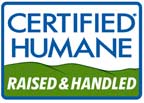 This is affiliated with the non-profit organization, Humane Farm Animal Care, and is the only animal welfare program audited each year by the Department of Agriculture. The organization's Web site says it was created to improve the lives of the 10 billion farm animals raised each year.
This is affiliated with the non-profit organization, Humane Farm Animal Care, and is the only animal welfare program audited each year by the Department of Agriculture. The organization's Web site says it was created to improve the lives of the 10 billion farm animals raised each year.
Its Certified Humane logo assures consumers that the animals were raised and treated humanely. It partners with the National ASPCA, Humane Society, and various state and local animal welfare organizations.
After you've enjoyed the whole dozen, the Green Living Ideas Web site offers these 10 uses for egg cartons. It has a lot of surprising suggestions, from using discarded egg cartons for makeshift ice cube trays to a food source for worm farms. You'll never put one in the garbage can again!




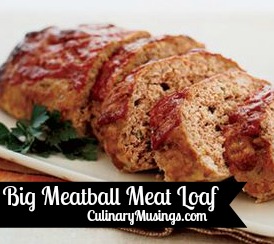
Thanks for writing about how confusing food labeling can be. There’s another label your readers would be interested in – Animal Welfare Approved. The Animal Welfare Approved food label and program assure consumers that the animals were raised with the highest welfare standards: raised on pasture, allowed to exhibit natural behaviors, not fed routine antibiotics or growth hormones.
The New York Times has endorsed Animal Welfare Approved:
“So what’s the term to look for if you want eggs from a happy, free-living bird? †Look for “animal welfare approved,†a new label by the Animal Welfare Institute that is given only to independent family farmers.” http://well.blogs.nytimes.com/2008/09/18/unscrambling-the-egg/?ei=5070&emc=eta1
Great! Thanks for that information.
Independent family farmers rock. And anything we can do to help them develop new markets is time well spent.